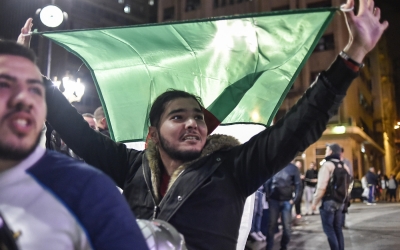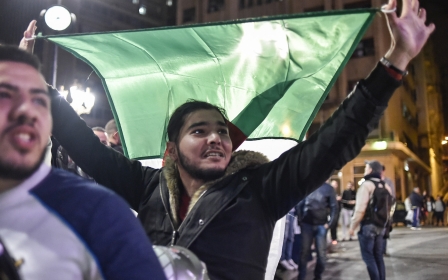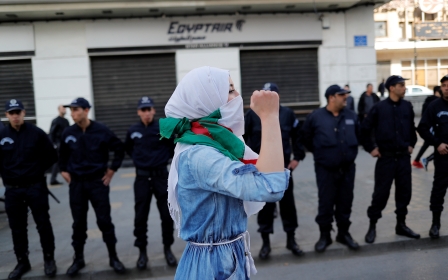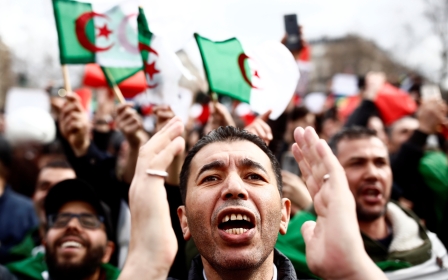No fifth term for Algeria's Bouteflika who... remains in power
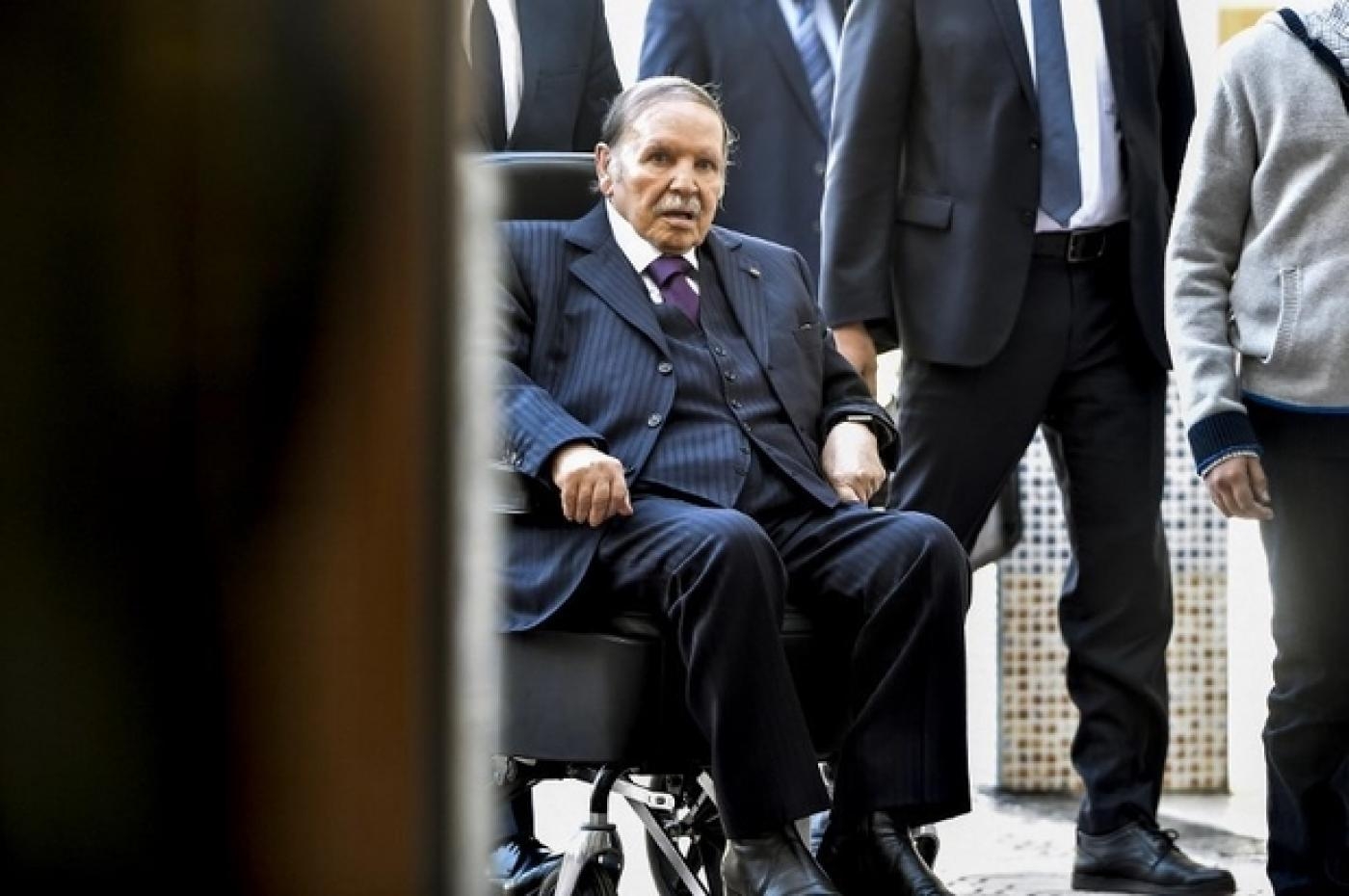
He will not seek a fifth term, has postponed the 18 April elections and has promised a broad reshuffle of the government.
Twenty-four hours after his return from Geneva, President Abdelaziz Bouteflika announced in a statement late on Monday several decisions implying that the message from hundreds of thousands of Algerians who had descended onto the streets in protest against his government had been heard.
But had it really been heard?
"Algeria is going through a sensitive stage in its history. On 8 March, for the third consecutive Friday, important popular marches took place across the country," read the statement, circulated on Bouteflika's behalf by APS, the country's official news agency.
"I particularly understand the message of young people in terms of both anguish and ambition for their own futures and that of the country."
Because of his state of health and his age, the 82-year-old president added: "There will be no fifth term and it was never discussed for me."
Those remarks contrast with a statement on 3 March, while Bouteflika was still hospitalised in Geneva, which was released in the president's name by his campaign director Abdelghani Zaalane.
In that letter, the president promised to organise an early presidential election if he was re-elected for a fifth term on 18 April.
Abdelaziz Bouteflika, Algeria's ailing president
+ Show - HideIt’s not uncommon to hear Algerians say “He’ll bury us all” when referring to their 82-year-old president, Abdelaziz Bouteflika.
His 20-year rule makes him the country’s longest serving head of state, but his political career stretches back to the 1960s, to a time when the ailing octogenarian cut a far more dashing figure.
In 1962, the same year that Algeria won its independence after a revolutionary war with France, Bouteflika was appointed a government minister. He was just 25.
Widely viewed as a political prodigy, he was promoted to foreign minister the year after, and was tasked with steering the resource-rich country through the minefield of Cold War rivalries.
After a period in exile from the late ‘70s through to the ‘90s, Bouteflika would eventually return to Algeria and win a presidential election in 1999, before presiding over the ending of a civil war that had torn the country apart for over a decade.
The early years of his rule were marked by an unprecedented growth in Algeria’s public purse amid skyrocketing oil prices. He was also been able to wrest control of political decision-making from the military and intelligence services by ending a 19-year state of emergency in 2011.
Yet his tenure has also been characterised by protests and riots over the unfair distribution of oil income, poverty and unemployment.
Bouteflika is credited with checking military influence. However ordinary Algerians widely view figures in the military as key players in le pouvoir (the power), a group of unelected - and often invisible - individuals said to wield almost limitless power over their lives.
The president has rarely been seen in public since he suffered a stroke in 2013.
His announcement that he would run for a fifth term brought simmering discontent out into the open, as people poured onto the streets.
As figures from the intelligence services and judiciary came out in support of the protests, Bouteflika declared on 11 March that he would not stand for re-election.
Making clear that his fourth term will continue, Monday's statement said: "I pledge finally, if God grants me life and assistance, to hand over the offices and prerogatives of the president of the republic to the successor that the Algerian people will freely elect."
According to the time frame outlined, a national conference supposed to "represent all the currents of the society" must fix a date for the next presidential election and to present, at the end of 2019, a new constitution which will be put to a popular referendum.
Conclusion: Bouteflika intends to stay in power until the next election, to be held after 2019.
Exceptional measures
In recent days, a consensus had emerged around the postponement of the 18 April election.
While several political figures and groups - including Abderrezak Makri, leader of the Movement for Society for Peace (MSP), Louisa Hanoune, secretary-general of the Workers' Party (PT), and the opposition movement Mouwatana - had called for a postponement, some decision-makers had also begun to study this option in the autumn of 2018, including the president's brother, Said Bouteflika.
For the moment, the terms of the postponement remain unclear.
To steer the transition, we have installed two figures of the establishment
- a disillusioned former political activist
As Walid Laggoune, a professor of constitutional law at the University of Algiers, told public radio: "The constitution does not provide for any provision on the postponement of elections."
However, he added that in certain political situations "it is the duty of those who have the decision to consider this postponement to meet the social demands".
"On paper, two ways are possible," a source close to Bouteflika's campaign team told Middle East Eye.
"Either a change in the constitution, which will take time, or the use of Article 107, which allows the president to take exceptional measures in case of 'imminent danger to its institutions, to its independence or to its territorial integrity'."
Establishment figures
"To tell the Algerians that he understood their message, it was necessary that heads fall," said a former executive of the FLN, the ruling party.
And heads have fallen.
Prime Minister Ahmed Ouyahia, an unpopular political figure and a technocrat who was broken by the intrigues of politics, has been sacrificed and replaced by one of the strong men of the moment: Noureddine Bedoui, 59, who was until Monday interior minister.
Without a partisan label, and spared by a press that respects him as a minister who communicates a lot (he is one of the few ministers to have active accounts on social media), Bedoui is said to be close to Nacer, another brother of the president.
Bedoui will be assisted by a deputy prime minister, Ramtane Lamamra, whose office was created on Monday by decree.
Lamamra is a veteran diplomat who was foreign minister between 2013 and 2017, and is held in high esteem abroad.
"To steer the transition, we have installed two establishment figures, who may have the interest of the state as a priority but embody everything except 'change'," concluded a disillusioned former political activist.
Middle East Eye delivers independent and unrivalled coverage and analysis of the Middle East, North Africa and beyond. To learn more about republishing this content and the associated fees, please fill out this form. More about MEE can be found here.


